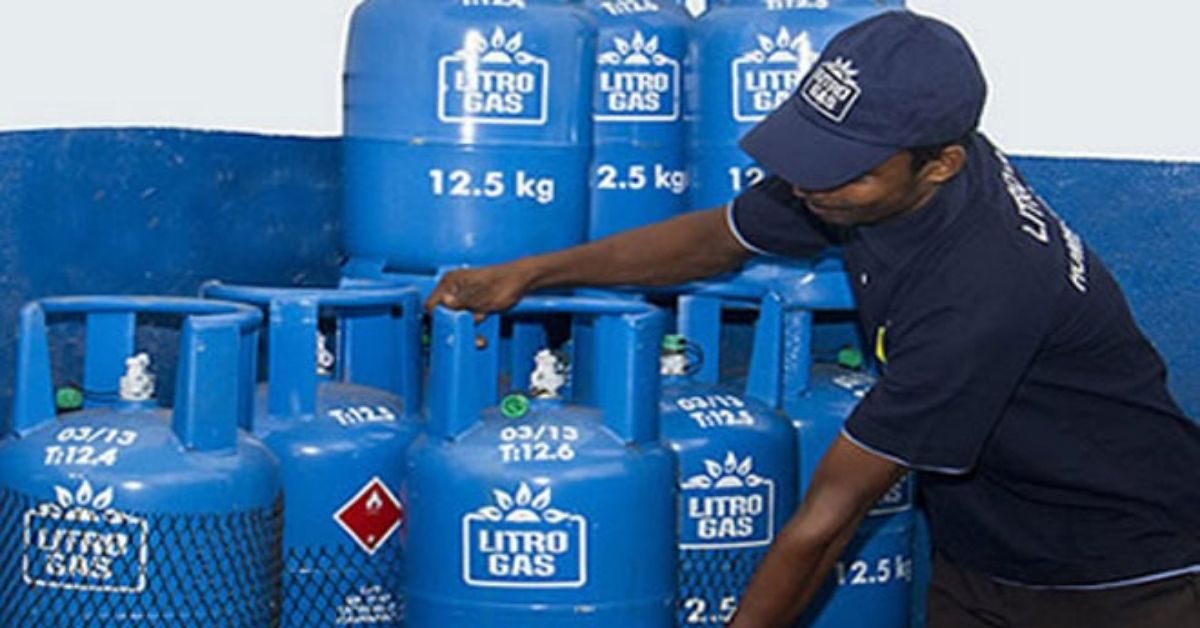The Government, through state-distributor Litro Gas PLC, is importing urgent stocks of empty LPG cylinders ahead of a possible artificial shortage while at the same time reducing taxes to ward off a price hike.
Litro Gas PLC will be purchasing 22,000, 105,056 and 1,260 LPG cylinders under the categories of 2.3 kg, 12.5 kg and 37.5 kg costing US$ 2.18 million from Thai-based M/s. Metal Mate Co Ltd to meet any artificial shortage in the market, official sources said on Friday.
Furthermore emergency purchases of LPG will be made by the company using Treasury funds and shipment of stocks bought under the usual procurement process is expected to arrive at the Colombo Port shortly.
At the moment there is no shortage of gas at Litro’s storage facility and the stocks are sufficient to meet the demand. However the government was anticipating a possible shortage in gas if Laugfs Gas choses to curb sales owing to high prices.
On the other hand, some traders were also holding onto empty and LP Gas filled cylinders in anticipation of a price hike, creating an artificial shortage of cylinders in the market.
Tax on LPG has been slashed by the Finance Ministry to maintain cooking gas prices stable but the two national LP Gas providers say it’s not enough to meet their very high import and other costs.
Issuing a special notification, the ministry has brought down the Port and Airport Development Levy (PAL) on LPG to Rs. 20 per kg from 7.5 per cent of the CIF value till the international prices stabilises at $320 per metric tonne.
Litro Gas has been able to supply LPG cylinders for consumers without any shortage during the COVID -19 difficult periods despite heavy losses incurred by the company due to global price increase and it is currently losing Rs. 300 to 400 million per day, a senior official of the company said
Chairman of Laugfs Holdings Ltd W.K.H. Wegapitiya told the Business Times that this tax reduction is very minute compared to heavy import and other overhead costs incurred by the company as the benchmark Saudi Aramco contract price has skyrocketed to $600 and it is accommodative to exchange rate fluctuations, FOB price of imports and changes in cost insurance and freight. On top of it the company has to bear additional costs for transportation, local purchases, applicable taxes and terminal charges, and manufacturer costs, he added.
According to an official announcement, the current controlled price was fixed in October 2019 at Rs. 1493.90 per 12.5 kg.
Since then the two LP gas suppliers have been making representations and submitting data on international market price, rupee fluctuations and other relevant company details to the Consumer Affairs Authority (CAA) every two months in accordance with the pricing formula requirement to determine the price of LP gas, he revealed.
They have suggested a price revision to CAA continuously during the past seven months, he said adding that the Finance Ministry’s recent action of PAL reduction will not offset the heavy losses incurred by his company.
The cost of importing LP gas per cylinders has increased by Rs. 700, he complained adding that the need of the hour is to revise the prices in accordance with the pricing formula.
The new price revision mechanism allows CAA in consultations with suppliers to revise the price of a gas cylinder based on the prevailing LPG World Prices (CP) and the Foreign Exchange rate every two months.
The CAA has the authority to fix the maximum retail price in accordance with the pricing formula on the directions of the ministries of finance and trade following consultations with the two companies wielding the monopoly of LPG in the local market
However in recent years, the market failed to reflect the global market trends of LPG due to the lack of regular implementation of the pricing formula.
The formula sets out to enable an efficient market where producers are not subject to ad-hoc pricing changes and where consumers are transferred any cost savings enjoyed by the producers.
Source: The Sunday Times







